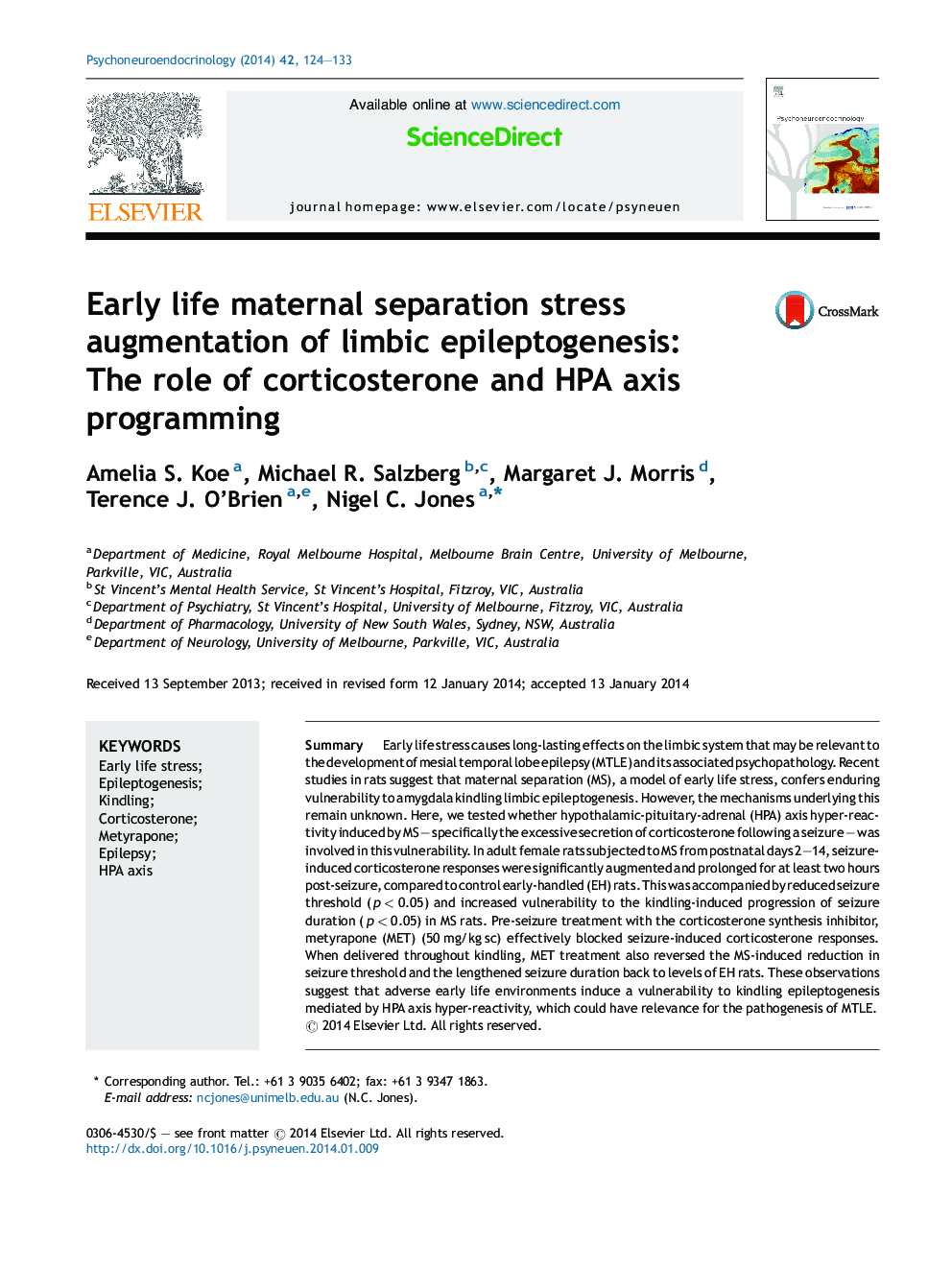| Article ID | Journal | Published Year | Pages | File Type |
|---|---|---|---|---|
| 336403 | Psychoneuroendocrinology | 2014 | 10 Pages |
SummaryEarly life stress causes long-lasting effects on the limbic system that may be relevant to the development of mesial temporal lobe epilepsy (MTLE) and its associated psychopathology. Recent studies in rats suggest that maternal separation (MS), a model of early life stress, confers enduring vulnerability to amygdala kindling limbic epileptogenesis. However, the mechanisms underlying this remain unknown. Here, we tested whether hypothalamic-pituitary-adrenal (HPA) axis hyper-reactivity induced by MS – specifically the excessive secretion of corticosterone following a seizure – was involved in this vulnerability. In adult female rats subjected to MS from postnatal days 2–14, seizure-induced corticosterone responses were significantly augmented and prolonged for at least two hours post-seizure, compared to control early-handled (EH) rats. This was accompanied by reduced seizure threshold (p < 0.05) and increased vulnerability to the kindling-induced progression of seizure duration (p < 0.05) in MS rats. Pre-seizure treatment with the corticosterone synthesis inhibitor, metyrapone (MET) (50 mg/kg sc) effectively blocked seizure-induced corticosterone responses. When delivered throughout kindling, MET treatment also reversed the MS-induced reduction in seizure threshold and the lengthened seizure duration back to levels of EH rats. These observations suggest that adverse early life environments induce a vulnerability to kindling epileptogenesis mediated by HPA axis hyper-reactivity, which could have relevance for the pathogenesis of MTLE.
